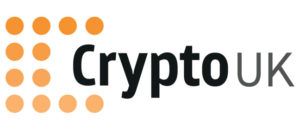
The self regulation movement in the crypto industry is catching on. South Korean exchanges have bandied together following the footsteps of their UK counterparts. This as a dark regulatory cloud hangs over industry which until the current stagnation was the most vibrant.
The regulatory hammer has taken down several casualties and the surviving cryptocurrency exchanges know too well they must put their house in order. Of the 33 exchanges in the country, 23 of them have bought into the idea. 10 of them have opted out of the arrangement and accordingly removed from the association.
The body is known as the South Korean Blockchain Association and is headed by Jeon Jae-jin. His stated focus of the association is to establish “safety and transparency of the exchanges.”
Review of Exchanges
The body will now launch standards for self regulation as well as conduct a review of cryptocurrency exchanges operating in the country.
The industry has been rather difficult to wade in the past three months and it is only natural the exchanges come together to find common solutions. Banks have for example been denying services except for a few major ones like Bithumb and Coinone.
Banks reckoned it was too expensive to open and operate real name cryptocurrency accounts as dictated by new rules that came into place in January. Banks previously operated virtual accounts containing several others inside.
The 23 Members
The 23 members according to the association include Glosfer, Zeniex, Nexcoin, Neoframe, Upbit, Bithumb, Gopax, Coinlink, Kairex, Scoin, Okcoin Korea, Whalex, Kcx Exchange, Money Exchange, Komid, Korbit, Korea Encryption, Coinone, Coinzest, Coinplug, Crypto Company, Dexko, and Huobi Korea.
The association is even already working with the law office on standards expected to be out in a “few weeks.”
A lot has been happening recently in South Korea. 12 exchanges were ordered by the regulator, the Fair Trade Commission, to revised their unfair adhesion contracts. They have to rewrite them more or less from scratch after they were found to be heavily tilted in their favour and against the customers.

Withdrawals were made painfully difficult and users had to bear almost all the losses that resulted from quitting, the regulator noted.
One of the exchanges that baulked is Coinnest.
The exchange has been having run ins with the regulator and it might understandably want to keep things under wraps for now. The CEO was one of the three crypto exchange executives arrested for fraud and embezzlement. Funds were allegedly stolen from customers and the two have some questions to answer. In the meantime, the executives have been suspended from their companies.
FTC’s Suggestions
The regulator is already helpfully offering suggestions on what the standards should contain. They include a wide range of disclaimers, restrictions on unauthorized deposits and withdrawals, restrictions on the arbitrary use of services, and corrective clauses on identity and password management.”
It is understood that the association has every intention to include these suggestions in its standards.
Once they agree to be reviewed the exchanges “will be checked for compliance with the self-regulation set by the association, focusing on security, coin listing procedures, capital and other investor protection.”
The exchanges now hope to inspire some confidence in their systems with the move. If this happens, the association hopes it can convince banks to once again open virtual currency accounts.
CryptoUk Already Ahead
Last month, UK cryptocurrency companies including exchanges, merchants came together under the ambit of CryptoUK in a bid to self regulate. The seven at the time included major players like Coinbase and eToro.

The platform was aimed at engaging policy makers as well as promoting “higher standards of conduct.”
CryptoUK already developed a code of conduct which it hopes will become part of the regulation. It provides among other things guidance on safeguarding customer funds in case of insolvency, due diligence and security.
The move also came amid increasing onslaught by regulators on the industry they accuse of enabling money laundering and other criminal activities like terrorism financing. The formation of CryptoUK happened under this background with several EU financial regulators and institutions like the IMF sounding warnings against cryptocurrency investments.
The UK is currently drafting regulations to govern the industry. It is not clear whether the association is having an input.

